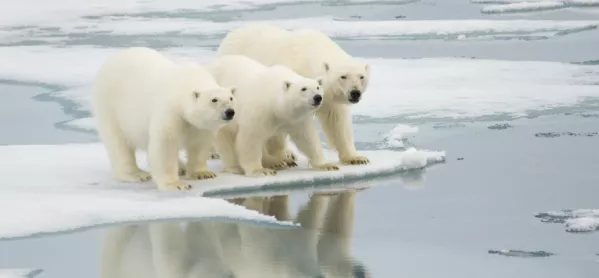TES has recently launched the free TES Teach app to help teachers create interactive lessons using digital content. For more information please visit www.tes.com/lessons
The science showing that humans are causing climate change is not new. Scientists in the nineteenth century were already calculating how human activities could increase global temperatures.
By the last decade of the twentieth century, climate change was accelerating at a rate that moved human-caused climate change from a hypothetical to a virtual certainty. Today, scientists, policymakers, and the global community recognize climate change as an urgent threat that citizens-especially students, the citizens of tomorrow-must understand and confront.
But classrooms in the United States have been slow to catch up with climate change.
While many teachers cover climate change, they tend to downplay the confidence of the science and the urgency of the issue. We know this thanks to a national survey of science teachers which my colleagues and I at the National Center for Science Education conducted with the Penn State Survey Research Center.
Encouragingly, we found that three out of four of science teachers present climate change in their classes.
But not all the results were so encouraging. Climate change isn’t scientifically controversial: upwards of 97 per cent of scientists in the field agree that humans are primarily responsible for climate change.
Yet many teachers mispresent it as scientifically controversial. Indeed, almost half of science teachers present the false claim that recent climate change is due to natural processes - many presenting it, confusingly, along with the scientific consensus (see table below).

Part of the reason for these discouraging findings is community pressure. Six in ten teachers live in counties in which fewer than half of the public agrees that climate change is caused by humans.
It is no wonder that teachers might feel pressure to skirt the topic of climate change, or to give credence to the doubts of parents, administrators, and voters. But teachers also know that their duty is to educate students about the scientific consensus.
Unfortunately, teachers are not always familiar with the current scientific consensus. Climate science has advanced rapidly since many teachers were in college. It is no surprise that two in five of the surveyed science teachers incorrectly estimated that fewer than eighty percent of climate scientists agree humans are responsible for climate change.
This gap between the views of scientists and teachers is exacerbated by a host of factors: slow deployment of state standards emphasizing climate change, political efforts to suppress such standards, outdated and misleading textbooks, and insufficient in-service training.
The result, as the NCSE/Penn State survey shows, is teachers who are uncertain about the scientific consensus on climate change and not confident about teaching it. Ideologically motivated groups play on that uncertainty by distributing misinformation online and even through direct mailings to teachers.
The science of climate change will only get stronger in years to come, and the need for climate education will only grow more urgent. To understand the emergence of new diseases like Zika, the increase of risks from drought, wildfire, and storms, and the economic disruptions already wrought by climate change, students need and deserve climate education to be presented uncontroversially across the curriculum in their schools.
Josh Rosenau is a biologist and researcher at the National Center for Science Education. He and his colleagues designed the first national survey of science teachers to examine climate change education, and work to protect the integrity of science classes against ideological interference.
Want to keep up with the latest education news and opinion? Follow TES USA on Twitter and like TES USA on Facebook

